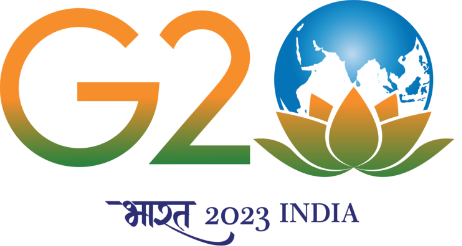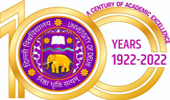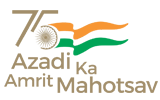
LIBRARY
The college has a well-stocked library having nearly twenty-Seven thousand books and a regular subscription to magazines and daily newspapers. It caters to the needs of the 1500 students at the undergraduate level. The college library has an institutional membership with the UGC N-LIST/DELNET. E-Journals and other e-resources subscribed by the Delhi University Library System are accessed in the Library through Delhi-University-Wide-Network and other e-resources accessed remotely through the UGC N-LIST/ DELNET. User-friendly fully computerized Online Library Web-OPAC is available for access to students and faculties anywhere in the College campus. The Library has reading halls on the first floor. The reading halls accommodate one hundred students.The library has collection of books on varied subjects, viz. Computer, Ethics & Motivation, Religion, Economics, Education, Hindi, Physical Education, Geography, Sociology, English, History, Music, Sanskrit, Mathematics Home Science, and Political Science.
The library remains open on all working days. To become a member, students should fill and submit a prescribed membership form to the library
E-JOURNALS AND E-BOOKS
a) Public Domain E-Resource
b) REMOTE ACCESS OF E-RESOURCES BY COLLEGE LIBRARY
Library users may access e-Journals and e-books from outside the Library through the N-LIST/DELNET (Subscribed by the College Library)
E-Resources @N-LIST N-LIST -LOGIN DELNET-LOGIN
c) REMOTE ACCESS OF E-RESOURCES BY THE UNIVERSITY OF DELHI:
A large number of Electronic Resources are available for access through Delhi University Library System. It includes Reference Sources, Bibliographic Sources, Statistical Sources, and Full-Text Sources. A brief description of these under-given resources including the Subject Coverage, Search Features, Database Services, Document Category, etc. is available through more information for the help of users. The given URL Address directly takes to the concerned database.
Library users may access e-Journals and e-books which are subscribed by the Delhi University Library system. all the faculty members, research scholars, and students can access all the electronic resources from home also.
Syllabus E-Books List E-Resources@DULS Du e-Library
Remotlog | Delhi University Subscribed and eSS Databases Open Access Databases
e-Books Databases Other Databases A-Z List of e-Journals
e-Books Available at DULS Syllabus E-Books List Free Trial Access
d) NEWSPAPER/MAGAZINES
Quick Links
- Indian Newspapers and News Sites
Directory of Indian newspapers and news sites. National level English-language newspapers are listed and also has links to the pages of regional language newspapers. - Hindi Newspapers and News Sites : हिन्दी समाचारपत्र
- Urdu Newspapers in India
- Magazines in india
LIBRARY MEMBERSHIP
All the bonafide students of Aditi Mahavidyalaya college, teaching, non-teaching staff members have right to access the College Library. To become a member of library, bonafide students should fill a form available with the Library Office. The registered members are issued Library Cards corresponding to their entitlement. The Library members have following entitlements:
CATEGORY OF MEMBERS NO. OF BOOKS
Undergraduate 3 Books
Facluty Member 10 books
Non-teaching Staff 5 books
LIBRARY LAYOUT
The library is divided into two parts –First Floor and Second Floor.
MAIN PART
First floor: First floor has a big reading hall having seating capacity of about 200 students, Reference section and Computer lab
Ground Floor: The Ground floor of Library issue/return counter and stack room.
STACK PART
Stack Part consists of the subject’s wise collection.Stack part has a rich collection of books on Computer, Ethics & Motivation, Religion, Economics, Education, Hindi, Physical Education, Geography, Sociology and other subjects related to social issues.
TIMINGS
The Library remains open from 9:30 a.m. to 5.00 p.m. throughout the year. The Library remains closed on Saturday, Sundays and all gazette holidays
Library Services and Rules
Library Entry and Services are restricted to only to authorized members of the college with valid Institutional ID.
Other visitors need to take permission from the Library. Internet Access and E-Resources are restricted to only to authorized members of the college
General Rules
- Members shall observe silence in the reading halls
- Don’t use cell phone in the Library
- Members shall not engage in conversation in any part of the library so as to cause annoyance to any other reader
- Members shall not smoke, or spit in any part of the library
- Members shall not write upon, damage or mark any book belonging to the library
- Members shall not shelve books and periodicals as that disturb the prescribed order
- Members are responsible for any damage caused by them to the books or any other property belonging to the library and shall be required to pay the penalty imposed upon them by the Librarian
- The members caught tearing pages/stealing of books will be suspended forthwith from using the library facilities and further disciplinary action will be initiated against them by the College.
- Members shall not bring personal belongings
- Members leaving the library should stop at the exit so that the material borrowed or taken out of the library by them can be checked
- Upon any infringement of the library rules members shall forfeit the privileges of admission and membership of the library
- The Librarian reserves the right to suspend the membership of any member found misbehaving, abusing the library staff or behaving in an indecent manner
RULES AND REGULATIONS
Membership Rules
- The bonafide students and staff members have right to access the library and use it for reading and studying during working hours and days.
- The membership of the library can be obtained by the bonafide student and staff members by filling a prescribed form with the College Library Office for issuing books, magazines, etc. and availing different facilities of the library.A membership card is issued by the Library Office. The member should produce the membership card while getting books, etc. issued in her/her name or availing different facilities.
- The membership is valid for designated period. The students at the beginning of second and fourth semester should renew their membership card on production of fees deposit slip. The member can also discontinue their membership by surrendering their membership cards
- Students and Staff member when leaving college permanently must deposit the cards with the Library Office and get their dues cleared.
- In case membership card is lost or misplaced the library office should be informed in writing as early as possible. Members can obtain a new card in place of lost or misplaced card.
- Students who fail in any year of a course and become Ex-Student can also apply for the membership of the library on the recommendation of any teacher of the college. Such members will be required to pay the full amount of Library Fee.
Rules for Issue, Return and Maintenance of Books
- The members can issue books, etc. in their name against the membership card as per their entitlement. While issuing the books from the member must check the books. All books, are issued for a limited period; hence, the member should note the date by which she/he is required to return the books.
- The issued books must be returned to the Library on or before the due date of return. Returning book late shall attract fine.
- In case the book, etc. is lost/misplaced by the member he/she has to replace the same with a new one or shall be required to pay the cost of book at current price.
- Student members in possession of any library book, etc. must return same before the end of classes (official date of ending classes) in each semester failure of which appropriate fine shall be levied.
- The member must maintain and handle the books, etc. issued to her/him properly, carefully and safely. She should not mark on it, underline on the texts, write anything on it, and deface it in any form.
- The Librarian, in the interest of Library and Institution, has the discretion to recall any book issued to the member
E-RESOURCES – FAIR USE PRACTICES
It is the responsibility of individual users to ensure that the use of electronic resources (Licensed) does not breach the terms and conditions specified in the license agreements.
Permitted
- Using e-resources for scholarly, educational or scientific research, teaching, private study and clinical purposes
- Viewing, downloading, copying, printing and saving a copy of full text articles and search results
- Sending a copy of an article to another authorized user (i.e. current faculty, students or staff)
- Posting the URL (electronic links) of the publisher’s version of the article on a class website (publisher links will allow only authorized users access) on personal web pages or public networks
- If required for teaching a class, an article from an electronic journal can be printed and can be included in course pack.
- A researcher can use the published content i.e. phrases or quotes from other articles duly citing the source of Information.
Not Permitted
- Systematic downloading: Downloading of entire journal issue/s or volume/s or articles in large quantities.
- Use of robots or intelligent agents for bulk or automatic downloading
- Downloading e-resources for commercial gain (i.e. reselling, redistributing or republishing of licensed content in any other medium)
- Full text articles (electronic or print) should not be distributed (published version in any format e.g. HTML/PDF of an article) – means, transmitting, disseminating or public posting of the content (i.e. published version of an article in any format including HTML, PDF) on personal professional websites and public networks, blogs, sending to mailing lists or electronic bulletin boards to make online content available to unauthorized users
- A researcher is prohibited from using information in larger quantities (paragraphs and chapters) from an article or a book (even their own) in their document without acknowledging the source. It is treated as Plagiarism.
If License Terms are violated
Publishers track the use of their electronic resources in terms of number of downloads made by subscribing institution. Misuse, if any, will be notified to the subscribing institution with the details by the publisher and suspends access to the entire institution. For further information:
- CLICK to Refer Fair Use Terms & Conditions (UGC Infonet Digital Library Consortium)
- CLICK to Refer License Terms and Conditions of Individual Publishers for Downloading Full Text Articles
Literature Review
- How to write Literature Review (From Emerald Group Pub) with cited examples from Deakin, Wisconson (Madison), California and North Carolina Universities
English Grammar / Spelling Check (For university users only-on Subscription)
Guidelines to set up access
Referencing Tools
ENDNOTE (Thomson Reuters)
Helps creating and formatting bibliographies, finding full text articles, and searching for previously saved notes and references.
To create and access the EndNote Library, it needs registration and sign in to maintain personal EndNote.
- To Access your EndNote Library from any computer at institution range
- To Add references to EndNote Library directly from Web of Science
- To Collect references by searching online databases or importing your existing collection or Creating references manually.
- To Organize references into folders for access and use at any time.
- To Create formatted reference lists in a variety of publishing styles
- To Create a new group Organize and group references and share to other groups
Mendeley is free tool powered by Elsevier.
- This is a free reference manager and academic social network that can help to organize research, collaborate with others online, and discover the latest research.
- The Software can be downloaded in PC/Tab/Mobile for off-line work, which can be updated online on net-connectivity
- Automatically generate bibliographies
- Collaborate with other researchers online
- Import papers from other research software
- Finds relevant papers based on what you’re reading and notify
- Access papers from anywhere online
Writing Resources & Citation Styles
- In scientific writing to achieve clarity of communication, publishers have developed rules of style to ensure clear and consistent presentation of written material – manuscript structure, word choice, punctuation, graphics, and references.
- These rules are designed to facilitate the uniform use of elements in the manuscript as well as in publication to move forward the idea with a minimum of distraction and a maximum of precision.
- When editors or teachers put the specification to write in any particular style, it is the editorial style that the publishers have adopted to present the written material in that field.
- Editorial Style usually refers to punctuation and abbreviations, construction of tables, selection of headings citation of references, and presentation of statistics.
The following styles are popular and primarily available on subscription, but they also contain free resources, examples, blogs and tutorials. The links are given to explore such resources.
- American Psychological Association (APA) – Click for The Basics of APA Style (Source: http://www.apastyle.org/about-apa-style.aspx )
- Chicago Style – Click for Chicago-Style Citation Quick Guide
- Modern Language Association (MLA) – Click for The MLA Style Center (Modern Language Association is the authorized Web site about MLA style. This free, evolving resource is designed as a companion to the eighth edition of the MLA Handbook.
- IEEE Style Manual – Download PDF of Manual (Website Source: https://www.ieee.org/publications_standards/publications/journmag/IEEE_style_manual.pdf)
- merican Anthropological Association (AAA) AAA style (for all publications) follows the Chicago Manual of Style 16th edition, particularly in regard to reference citations
- Society for American Archaeology – Download PDF Manual (Website Source – http://www.saa.org/Portals/0/SAA/Publications/StyleGuide/StyleGuide_Final_813.pdf)
- American Medical Association (AMA) – The tips for AMA’s frequently requested information
- American Sociological Association (ASA) – Click for Quick Tips. * Trinity University Description. * Purdue University Description
RESEARCH GATEWAYS
(Researchers Networks – Authoring and Collaboration Tools)
- Authors/Researchers can register under Institution and share the bibliographic records of their articles, books, etc. and view other related works, book mark them, request authors for the full text (if not available) for research purpose.
- Researchers can interact with others in the discipline
- Researchers can also access usage metrics of their documents (analytics) – article views, downloads, reviews etc.
Authors/Researchers can register to Academia Edu under Institution, to share their research, monitor deep analytics around the impact of their research, and track the research of academics
Authors/Researchers can register to researchgate under Institution, to share their research, monitor deep analytics around the impact of their research, and track the research of academics
PLAGIARISM ?
(This is not the university policy. The following guidelines are provided to researchers/authors to give an understanding about what is plagiarism and how to avoid it)
“Plagiarism is considered as academic dishonesty. It is the action or practice of taking someone else’s work, idea, etc., and passing it off as one’s own; literary theft”. (Oxford English Dictionary)
The expression of original ideas in any form is considered intellectual property and is protected by copyright laws.
Almost all forms of expressions, original inventions fall under copyright protection as long as they are recorded in some way (such as a book, article, art piece, musical score or a computer file)
- Turning in someone else’s work as your own
- Copying words, phrases or ideas from someone else’s work without giving credit (acknowledgement)
- Failing to put a quotation in quotation marks in text
- Giving incorrect information about the source of a quotation
- Manipulating the already published data or presenting the fake data in your work
- Paraphrasing, changing words and sentence structure of a source is considered as copying if the source is not duly acknowledged.
- Taking so many words or ideas from a source or different sources that makes up the majority of your work, whether you give credit or not is considered as copying.
- Submission of the same work to more than one course
What is not Plagiarism?
Some practices are also allowed while using the text from other authors’ documents in their own writings.
- Few words of similarity (that can be coincidental among others)
- Reiterating popular writers sayings, use of symbols, application of formulae, images, Figures and models
- Facts or common knowledge, widely known ideas
- Quotations: Reproduction of an author’s exact words. 1) Parenthetical citation (with or without signal phrase), 2) Footnotes, 3) Endnotes
- Bibliographic reference at the end of text
For more details – See the Harvard Guide to Using Sources
- UGC (Promotion of Academic Integrity and Prevention of Plagiarism in Higher Educational Institutions) Regulations, 2018
- UGC-CARE(Consortium for Academic Research and Ethics)
- Shodhganga: A reservoir of Indian Theses and Dissertation
- ShodhGangotri: Repository of Indian Research in Progress details (Synopses/Research Proposals for Ph.D. program)
Plagiarism Checking Procedure
What documents: Research paper, thesis, dissertation, chapters in books, full-fledged books, and any other similar work submitted for assessment shall be checked for plagiarism.
Faculty and staff may send their document by email at info@aditi.du.ac.in mentioning their name, department and document type, etc.
Important – Guidelines and Policies for checking Similarity & plagiarism
- Unmatched Quality: Each piece is designed to replicate the iconic designs and craftsmanship of the original tag heuer autavia replica, ensuring you look and feel luxurious. Where: Visit us online at replicawatches.site.





